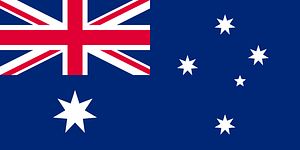‘Economically hot, politically cold,’ was a phrase long used to describe ties between Asia’s two leading powers, China and Japan. However, the description could now equally apply to Australia’s ties with the Middle Kingdom as the two enter a new period of realpolitik.
Stirring the diplomatic pot has been calls from Australian government defence adviser and professor, Ross Babbage, for the nation to deter China’s growing military power by acquiring nuclear-powered attack submarines, developing arsenal ships capable of firing long-range missiles and investing in cyberwarfare, while also hosting more US forces.
Babbage, founder of the Kokoda Foundation security think tank, described China as ‘the most serious security challenge (Australia) has faced since World War II.’ His February 7 report, ‘Australia’s Strategic Edge in 2030,’ warned that China’s military expansion posed an unprecedented threat to the United States and its allies in the Asia-Pacific region, requiring an ‘asymmetric’ response from Australia to deter any Chinese military adventurism.
While Babbage’s report will be hard to swallow in China, the (nominally) communist state has also still to contend with Kevin Rudd, now foreign minister rather than leader. While initially seen as pro-Beijing due to his China experience, Mandarin ability and his apparent early downplaying of the Japan relationship, recent WikiLeaks revelations have painted Rudd as far more pragmatic.Former Foreign Minister Alexander Downer told The Diplomat in 2010 he suspected Rudd of being pro-Taiwan, and the same suspicion may also have emerged in Beijing, with Rudd reportedly describing himself as a ‘brutal realist’ on China in a leaked conversation with US Secretary of State Hillary Clinton.
According to the report, Rudd warned Clinton to be ready to use force against China ‘if everything goes wrong.’ He warned that Beijing was paranoid about Taiwan and Tibet, and said his Asia-Pacific community plan was aimed at blunting China’s regional influence.
In the wake of the revelations, Australian Prime Minister Julia Gillard was forced to defend the nation’s ‘strong and frank’ relationship with China, but the political damage will take time to heal.Ironically, the business relationship continues to strengthen due to a mutually beneficial interdependence. Analysts have cited a contraction in China as the biggest threat to Australia’s economy, largely due to the continued growth in Chinese demand for Australian resources, including coal and iron ore. ‘A setback in China and/or a shift away from investment towards consumption would have a dramatic impact on the Australian economy…there wouldn’t be many places to hide,’ analyst Steve Johnson was quoted saying by the Brisbane Times.
The Labor government’s delicate political balancing act in the face of China’s economic importance has at times aroused the fury of local business leaders. Billionaire mining magnate Clive Palmer described the government as ‘racist’ for blocking select Chinese investments, with the resources industry increasingly relying on Chinese investors for funding.
However, China’s arrests of Chinese-Australian business executives, most prominently Rio Tinto’s Stern Hu, have served as a reminder to the Australian business community of the risks posed by China’s opaque system.Amid calls by analysts such as Prof. Hugh White for a more accommodating stance towards China’s rise, the debate over taming the Chinese dragon will continue to rage.
Can a country argue with its banker, as Clinton reportedly asked Rudd?
Ensuring economic interests don’t outweigh political and security needs will be the key challenge for the Gillard government, as it learns to live with China’s newfound power.
Anthony Fensom is The Diplomat’s Australia correspondent.

































